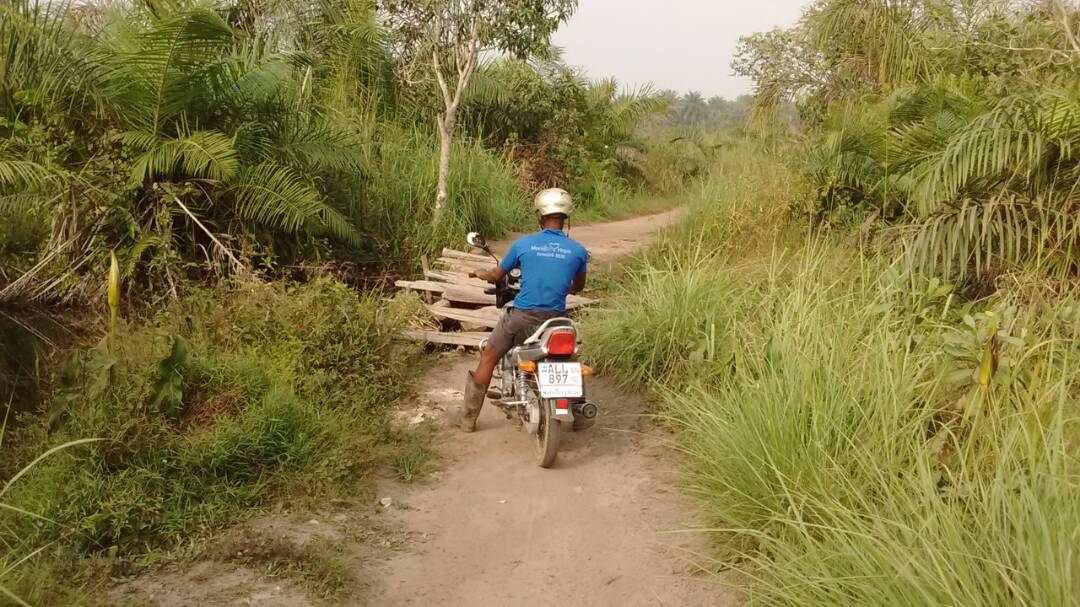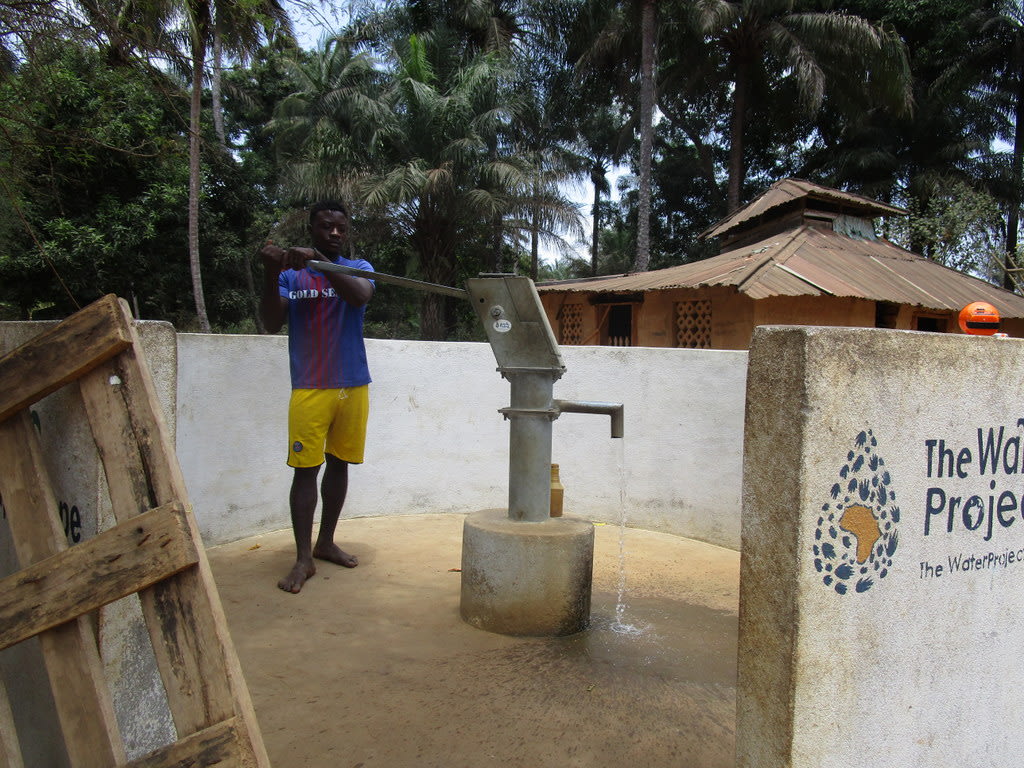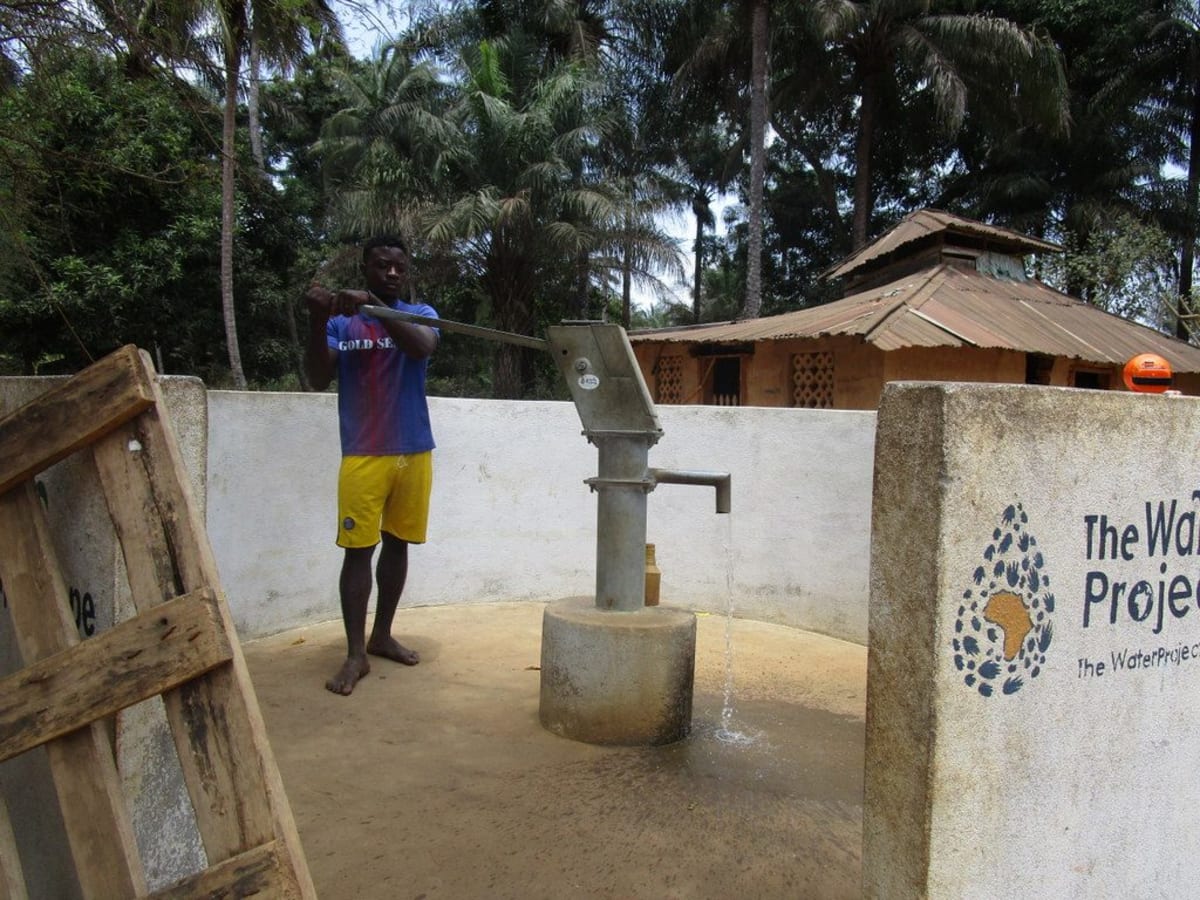It takes 25 minutes on motorbike to get to Sanya Community, and the road is rough at times:

Sanya is a rural community in a lush, green swampland. The buildings are made of mud and cement blocks, arranged in a straight line. There's a field in the center where both young and old people gather to play games. The swamps allow for fertile, beautiful gardens and the households are blessed with fruit trees.
Produce sales sustain most of the 42 families living here, while others raise cattle, make furniture, or trade wares. In fact, there's a man here that makes such beautiful furniture that we bought some for our office!
Since this village is predominantly Muslim, most people up extremely early to be at the mosque by 5:30am. The rest of the day is spent farming, doing chores, and socializing. This is an especially unified community. During this particular visit, tons of people were gathered at the furniture maker's shop chatting together.
Water
Sanya Community members rely on water from the swamps. They've cleared a path to the nearest swamp and cut down brush around the water. During the dry season, the water levels go down to the point that people have to dig for water. Soniya Kargbo told us that it gets so bad that nobody's interested in water quality.
"All you want is water and nothing else. We walk in the same water we drink," she admitted.
Animals are free to come and go as they please, too.
A nurse from a nearby health clinic said that waterborne disease is the biggest culprit of premature death in Sanya - diarrhea, cholera, and so on.
"I experience frequent diarrhea, but I have no choice but to resort to this, particularly during the dry season. I will send my kids to the other village for water when ours is hard to get," Mr. Adikalie Conteh said.
"This brings a lot of torment to my life."
Sanitation
The few latrines in this village are not in good condition. Latrine cleanliness is neglected; people dig a hole in the ground, cross two sticks over the pit and fill the gaps in the wall with mud. There are no roofs.
There are so few latrines and conditions of the existing ones are so bad that open defecation is a huge problem - people are just going outside.
There are no containers set aside for hand-washing. When asked about it, people often point to the bucket that they take to bathe.
"We were born in this condition and we have no control over it. We never even knew that sleeping with our animals in the same house is not good," Mrs. Ya Kadia Kargbo.
Here's what we plan to do about it:
Training
There will be hygiene and sanitation training sessions offered for three days in a row.
The hygiene and sanitation trainer decided it would be best to teach community members the importance of building a latrine, how to build a hand-washing station, and more. They will also teach about other tools like dish racks and the importance of properly penning in animals. Pictures will be used to teach the community how to discern between healthy and unhealthy hygiene and sanitation practices.
These trainings will also result in a water user committee that manages and maintains the new well. They will enforce proper behavior and report to us whenever they need our help solving a serious problem, like a pump breakdown.
Borehole
The community will be meeting together to determine the best location for their new well, and then we'll confirm the viability of their choice.
Our team will drive over the LS200 mud rotary drill rig and set up camp for a couple of nights. Once the well is drilled to a sufficient water column, it will be cased, developed, and then tested. If these tests are positive, our mechanics will install a new India Mark II pump.
This community has been drinking dirty swamp water and suffering the consequences. By drilling this borehole, Sanya Community will be provided with plenty of safe, clean drinking water.
This project is a part of our shared program with Mariatu's Hope. Our team is pleased to provide the reports for this project (formatted and edited for readability) thanks to the hard work of our friends in Sierra Leone.

 Borehole Well and Hand Pump
Borehole Well and Hand Pump
 Rehabilitation Project
Rehabilitation Project























